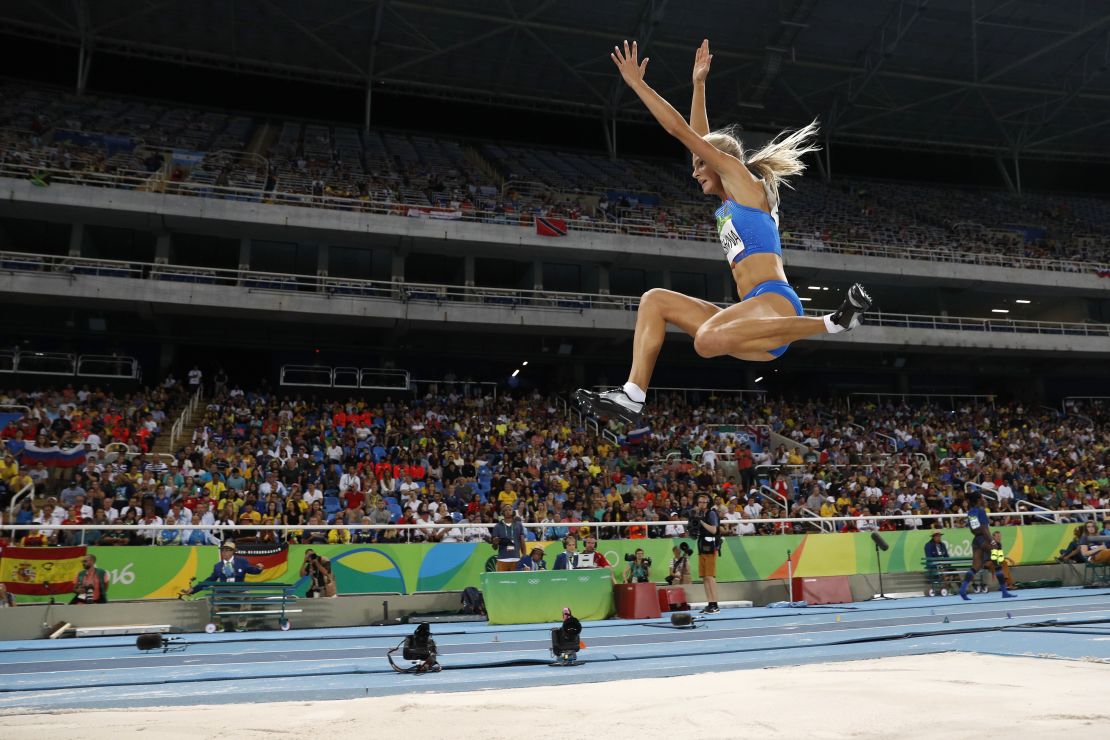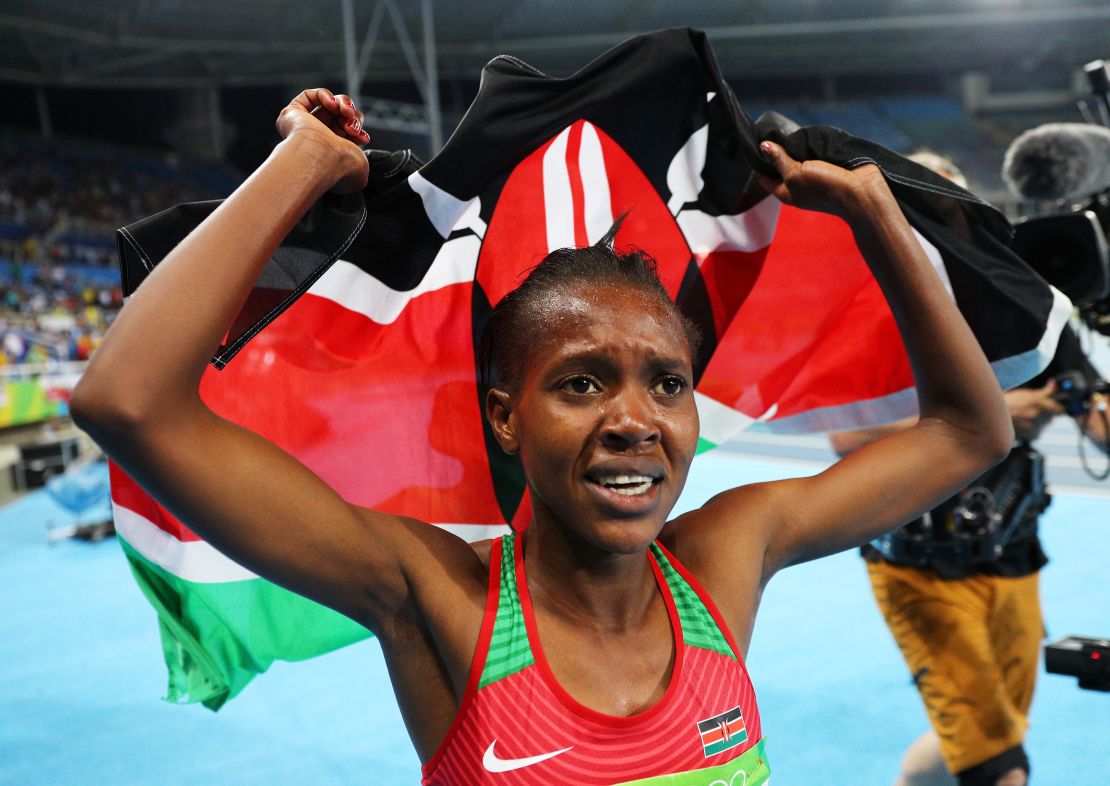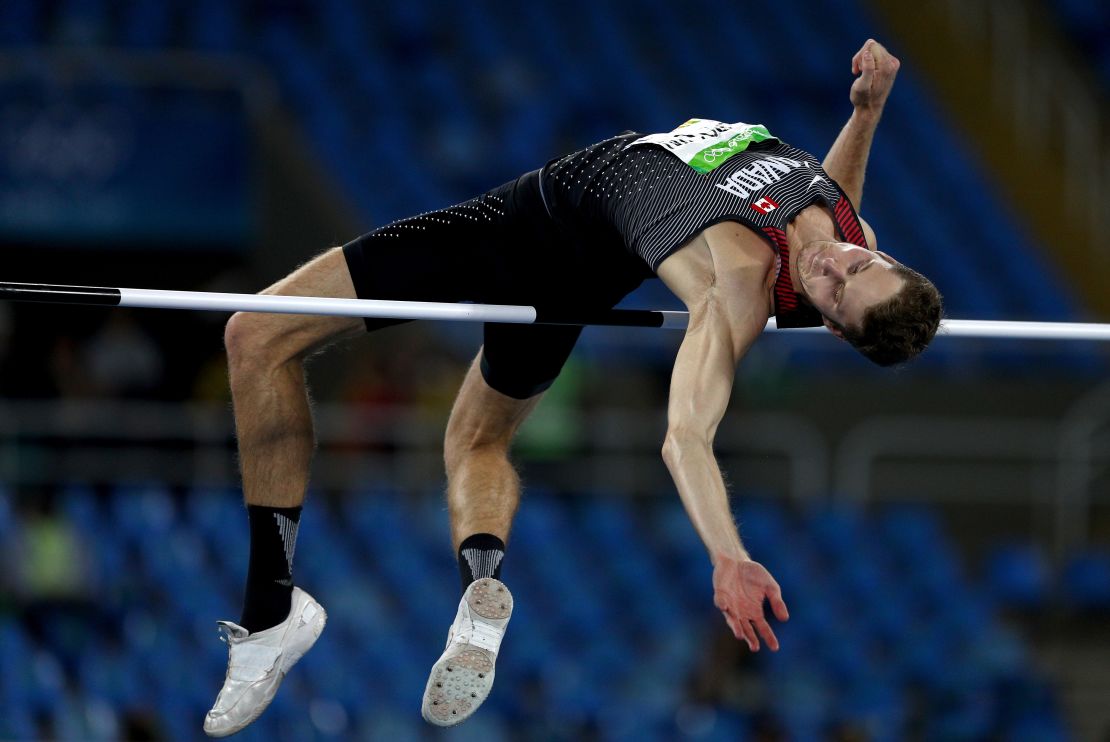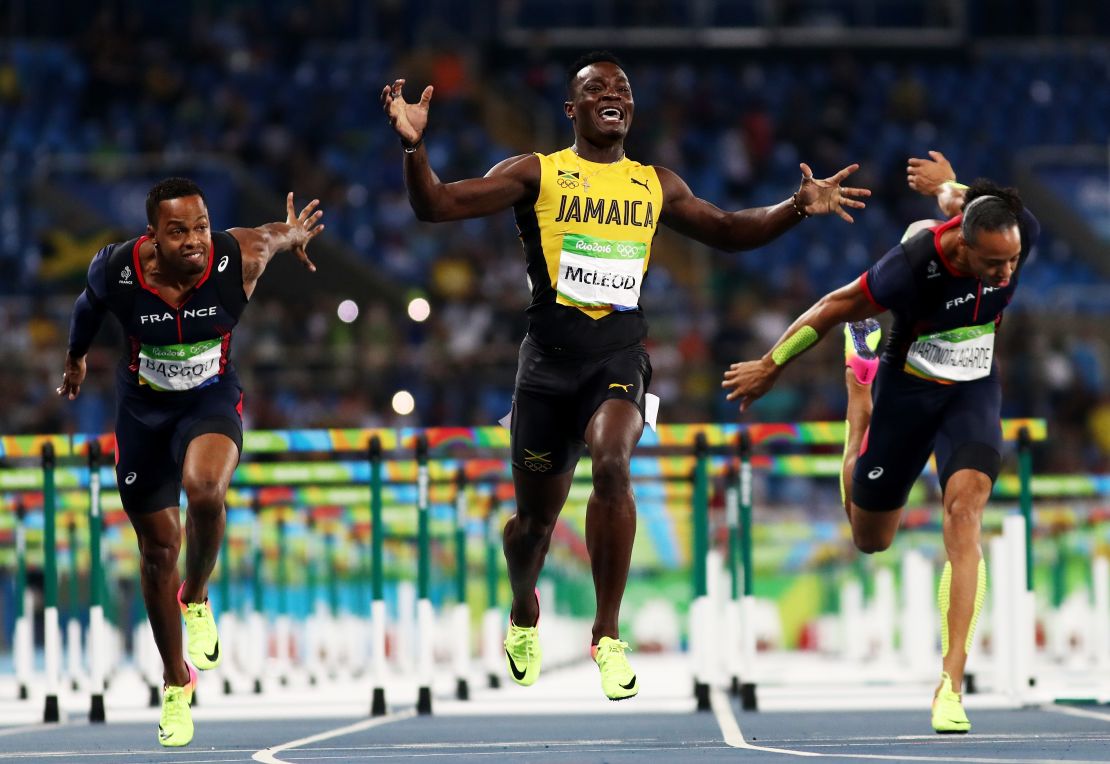Story highlights
Klishina through to long-jump final
Kenya's Kipyegon takes 1,500m gold
Canada's Droin wins high jump
Jamaica's McLeod wins 110m hurdles
She might be feeling the pressure of being all alone, but Darya Klishina could yet still win Russia’s only athletics medal at the Rio 2016 Games.
The US-based athlete was only cleared to compete on Monday after the Court of Arbitration for Sport overturned her ban, but was still able to qualify for Wednesday’s long-jump final.
With 67 fellow track and field athletes left at home due to claims of widespread state-sponsored doping, Klishina is finding it tough.

“It is very hard being the only Russian, as normally we are a big team with big support, and I am alone,” she told reporters Tuesday after making it through to the 12-woman final in eighth place.
Day 11: Follow all Tuesday’s Olympic action
“I want the Russian team here with me. I was nervous.
“I had too much stress over the last week but I do not want to talk about the last week.”
Last week, the International Association of Athletics Federations (IAAF) suspended Klishina based on “new information it received” about the 25-year-old. The IAAF did not publicly elaborate on what this new information was.
CAS, however, ruled that the IAAF’s initial decision to clear her was the correct one.
Klishina, a two-time European indoor champion and gold medalist at the 2013 World Student Games in Kazan, has been based in Florida since 2011.
That meant she was exempt from the ban implemented by the IAAF on Russian athletes as it decided that Klishina was being tested by a “credible anti-doping agency.”
She will now hope to improve on her qualifying distance of 6.64 meters.
Serbia’s Ivana Spanovic led the way Tuesday with a best distance of 6.87. Defending champion Brittney Reese of the US was third on 6.78, behind Germany’s Malaika Mihambo (6.82).
American world champion Tianna Bartoletta was fifth with 6.70.
Read: Russian swimmer - America has changed me
World champ beaten

Kenya’s Faith Kipyegon produced a stunning final lap to claim gold in the women’s 1,500 meters.
Kipyegon ran home in 4min 08.92secs to overcome the challenge of Ethiopia’s world record holder Genzebe Dibaba, who finished second ahead of Jennifer Simpson of the US.
“I knew it would be a fast race, I really had to kick on the last lap,” Kipyegon, beaten by Dibaba at last year’s world championships, told reporters.
“I was well prepared for the race. I’m proud to win for my country.”
High jump history

Derek Drouin became the first Canadian man to win Olympic gold in individual athletics for 20 years.
The last was Donovan Bailey in the 100 meters at Atlanta in 1996, but Drouin ended that run after edging out Qatar’s Mutaz Essa Barshim.
Drouin, the first Canadian male to win high jump gold since 1932, had a best leap of 2.38 meters to add the Olympic title to his world crown.
“It feels pretty sweet,” the 26-year-old told reporters.
“There have been some sacrifices but I’ve always prided myself on my mental toughness.
“My family were in the front row. Mom was in tears and Pop was so proud.”
Jamaican joy

While Usain Bolt made a low-key start to the second leg of his historic “Triple Triple,” qualifying 16th fastest for the 200-meter semifinals, Omar McLeod gave Jamaica reason to celebrate as he won the men’s 110-meter hurdles title.
McLeod recorded a time of 13.05 seconds to defeat Spain’s Orlando Ortega, who took silver ahead of France’s Dimitri Bascou.
He is is planning to celebrate in style after becoming the first Jamaican man to win the event.
“Hurdles is all about character,” the 22-year-old said.
“I worked hard, prayed hard and seized the moment. I can’t get my mind around this. Is this real?
“Now I’m going to eat as much ice cream and cake as I can.”

